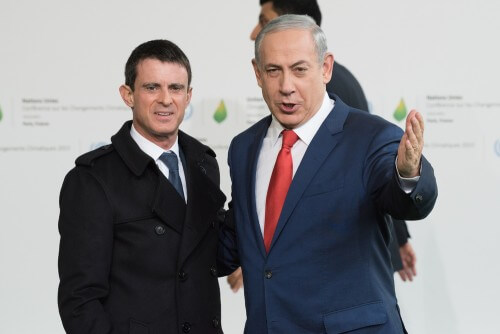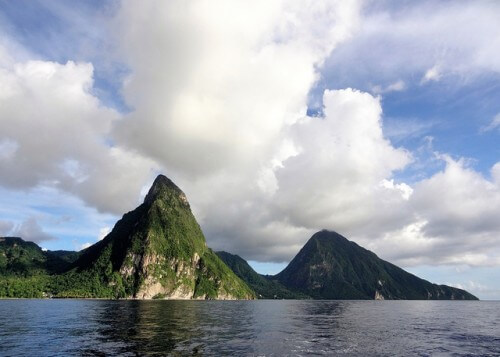The first week of the climate conference in Paris can be compared to a roller coaster ride: lots of ups and downs, bumps, downs and screams - but also ups. At the end of marathon discussions yesterday, the delegations approved a draft agreement that will be forwarded to the leaders of the countries, who will arrive in Paris this week to discuss and hopefully also sign a historic agreement
Angle System - a news agency for science and the environment

Saturday, December 5
It can be said that Saturday, compared to the day before it, was a day of hope, even if it started a little lame.
In the morning, the representatives of the delegations were supposed to gather at the end of the first phase, in order to formulate and approve the final draft of the agreement by noon, in order to submit it for discussion to the heads of state during the next week. However, at a press conference held before noon, it became clear that the concluding meeting to approve the draft agreement, which was supposed to start two hours earlier, had not yet begun. But not everything looks black.
Liz Gallagher from the E3G organization said that during the talks the dynamics between the blocs of countries changed, and that in many cases they are beginning to see some flexibility in the positions of some countries. The initial division, for example, between the countries of the Global North and the countries of the Global South, Gallagher said, is no longer reflected in any issue except the economic issue. According to her, while the Arab countries continue to form a bloc of opposition to many of the sections, it is precisely India that surprises for the better and cooperates more than expected.
On the subject of the ratchet mechanism (the mechanism for future reporting on compliance with emissions targets), Gallagher said that "as Facebook would define it - 'It's Complicated.' This is the least 'ripe' area among the topics of discussion, it is a relatively new topic that we are trying to promote and the idea behind it is that the Paris conference will be a sort of push for action, and what we are currently seeing is that mainly developed countries - but also developing powers - are looking at the conference as an opportunity for retrospection, as a gathering aimed at To see what has already been done and assess where we are, and not necessarily to look ahead and make sure that the Paris Conference will be a ground for an effort to reduce emissions and regular and ongoing monitoring and surveillance. Nevertheless, we are beginning to see some elements of flexibility - we have progressed a long, long way, and what will happen from now on with this progress depends on the heads of state."
Brandon Wu of ActionAid reiterated that the issue of financial aid is still controversial. "The developed countries still do not provide a commitment regarding the amounts of money they will transfer to the Global Fund, as well as a clear plan of how they intend to raise these amounts," Wu said. "It is important to emphasize that the allocation of the amounts to a global fund is one of the sections where a compromise is required on the part of the developed countries for the benefit of the negotiations. The issue of economic aid is a central condition in the UN action plan, which will decide the outcome of the conference. Without a financing fund, it will not be possible to provide assurances to the developing countries that the commitments they are asked to give as part of the agreement will indeed be able to be implemented."

A positive wind began to blow towards noon, when it was announced that progress had indeed been made on this controversial issue: the parties reached agreements regarding the compensations for the countries expected to be affected by climate change in the most severe manner. These are mainly the island countries and some of the developing countries, which are going to suffer a lot from climate change, and if the parties do not reach a reasonable agreement that by the end of the century they will find themselves below sea level. The dispute is, beyond the reduction of emissions, is over the compensations that the developed countries - whose emissions damages have a severe effect on the island countries - need to provide to the global fund for the benefit of the compensation mechanism. "I think we are now closer to a solution," said the Minister of Environmental Protection of St. Lucia, one of the Caribbean island countries, who was present at the discussions on Friday. "I saw the use of a common language in the discussions, which means that it is possible that in fact we have already reached a solution on the issue."
In the afternoon, the concluding meeting of the first phase was closed, and a final draft, which the heads of states will carry and give during the next week at the conference, was approved by the representatives of the states.
The agreement includes different options for each of the issues that are up for discussion, from which the heads of state will have to choose and agree on commitments that will be formed into an overall agreement on climate change, which will be signed by all 195 countries present.
Laurence Tobiana, the representative of the French delegation to the talks, said at the end of the discussion: "This text symbolizes the common desire to reach agreements, but we have not yet reached the end of the road. Fundamental political issues have not yet been resolved."
Friday, December 4th
Friday was not an easy day at the climate conference, where it was still hard to see the light at the end of the conference.
At a press conference held near the end of Friday, Lou Leonard, vice president of the World Willdlife Foundation, said: "We are behind about 50 percent of the conference time, and we have only finished about 25 percent of the work. So our time is short and we still have a lot of work ahead of us, and we need to speed up the process so that tomorrow we will be able to submit a clear and orderly text to the heads of state - which will allow them to make the difficult decisions they face." Leonard directed his words to the draft agreement, which should be submitted to the heads of state on Saturday. A specific point of contention in the text concerns the "ratchet" mechanism: "The idea of the mechanism is that every five years each country will report on its progress towards the emissions target it has set for itself (INDC), and set a renewed and increased target. One of the main points of contention at the moment is when this time period will start: will the countries come together again to increase their targets in 5 years or only in 10 years? At the moment there is no agreement on that."
Apart from the disagreement on the ratchet mechanism, another essential point for the success of the agreement is bridging the gap between the developed and developing countries, and creating cooperation between them. At the moment, according to Leonard, what is delaying the work on the agreement is mainly the discussions on its economic side, and according to him the heads of government of the developed countries are expected to offer greater economic aid than they have offered so far.
Thursday, December 3
Thursday was marked by accusations from the blocs of developing countries towards the developed countries regarding attempts to evade their historical responsibility for greenhouse gas emissions, and "throwing" the responsibility onto the developing countries.
The head of the Chinese delegation, Su Wei, said yesterday at the end of the day that the developed countries such as the USA, Great Britain and Germany must recognize their historical responsibility for climate change and global warming, and for the amounts of greenhouse gases they emitted in the past years: "The fact remains, that the problem was originally caused by the developed countries. They must take upon themselves the historical responsibility for the situation, and lead the trend of reducing greenhouse gas emissions."
During the discussions on Thursday, the delegations were presented with a report that recommended targeting the emission reduction targets to limit the increase in temperature to only 1.5 degrees Celsius since the pre-industrial era, and not 2 degrees as defined in advance in the goals of the conference. The claim is that the goals for limiting the increase to only 2 degrees are not enough to prevent fatal damage to some countries - for example the island countries, which are expected to disappear under water with the rise of the sea level. Following this, the goal in the discussions is to direct the goals accordingly - a point on which over 100 now agree. At this point, serious disputes arose, because a group of countries, and especially the bloc of Arab countries led by Saudi Arabia, opposes the goals that such a goal requires.
Another dispute emerged between the developed countries and the developing countries - also regarding the reduction of emissions, but more so, on the scope of the economic aid that the developed countries will invest in the Global Aid Fund (GCF) to help the developing countries meet the emission targets, invest in renewable energy and establish a compensation mechanism for poor countries that are expected to be damaged especially from climate change. "We have to see a willingness on the part of the developed countries to do and give more," said Kelly Dent from the British Oxfam organization to fight poverty. "Developing countries cannot commit to investing money until the rich countries do so."
